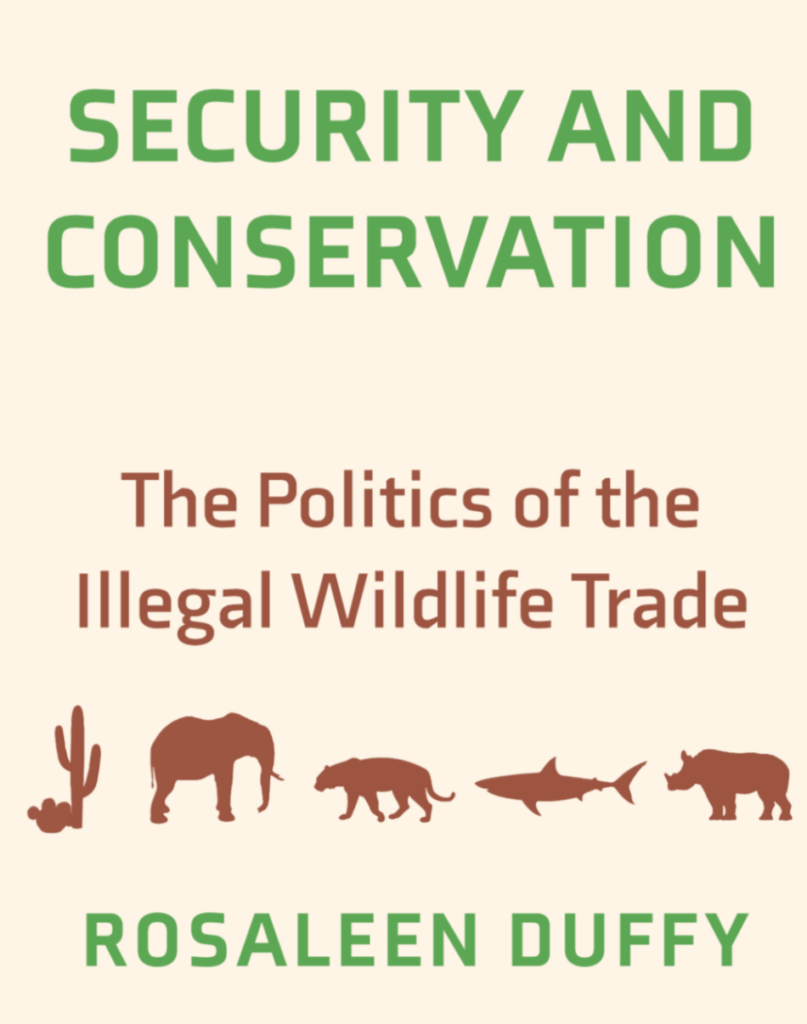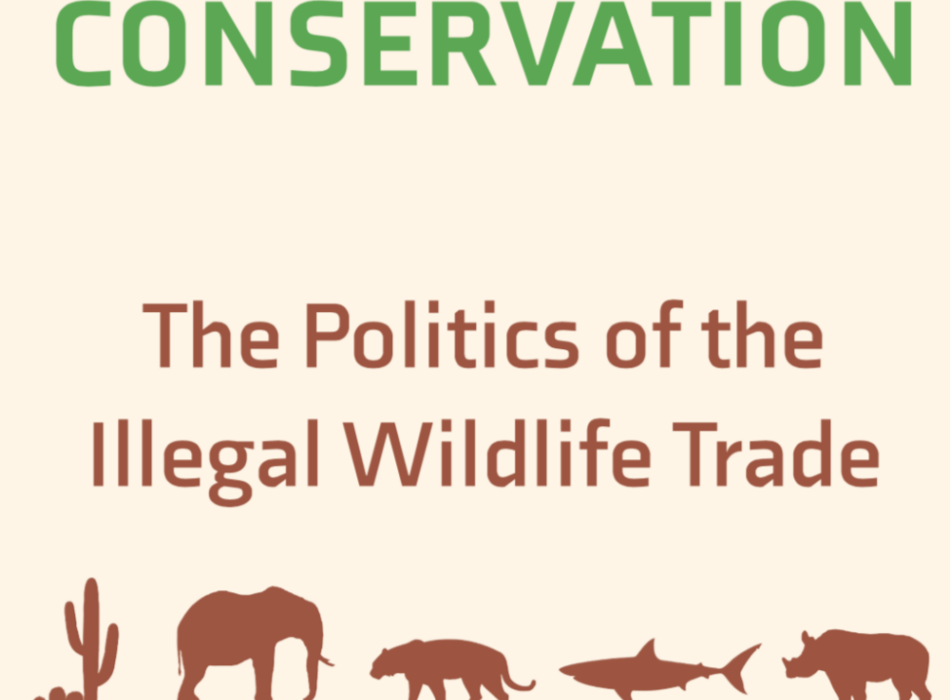On 9 May Rosaleen Duffy will be speaking at CRITIQUE Centre for Ethics and Critical Thought, University of Edinburgh, about her new book, Security and Conservation: The Conservation Politics of the Illegal Wildlife Trade (recently published by Yale University Press.)


Rosaleen will use the idea of a political ecology of security to examine the reasons behind this shift, since the rises in poaching from 2008. Responses to poaching and trafficking have focused on enhanced law enforcement, militarization, surveillance and intelligence gathering (Marijnen and Verweijen, 2016; Ashaba, 2020; Büscher and Ramutsindela, 2016; Büscher and Fletcher, 2018; Mabele 2016; Dutta, 2020; Teklehaymanot 2020; Masse et al 2020).
This was underpinned by a renewed sense of urgency to do something to save iconic species from extinction, and this was then re-embedded by COVID-19 because wildlife markets were identified as a possible source of the pandemic. As a result, there has been a rise in funding available from donors, governments, philanthropists, and corporations to support conservation. This funding has primarily been used to support enforcement first approaches (Duffy and Masse, 2022). Several global wildlife conservation NGOs are the beneficiaries of these new sources of funding, but so are a raft of new entrants to the conservation scene: private military companies, intelligence services, risk analysts, surveillance technology developers, and drone manufacturers.
More information on the timing and venue are here
